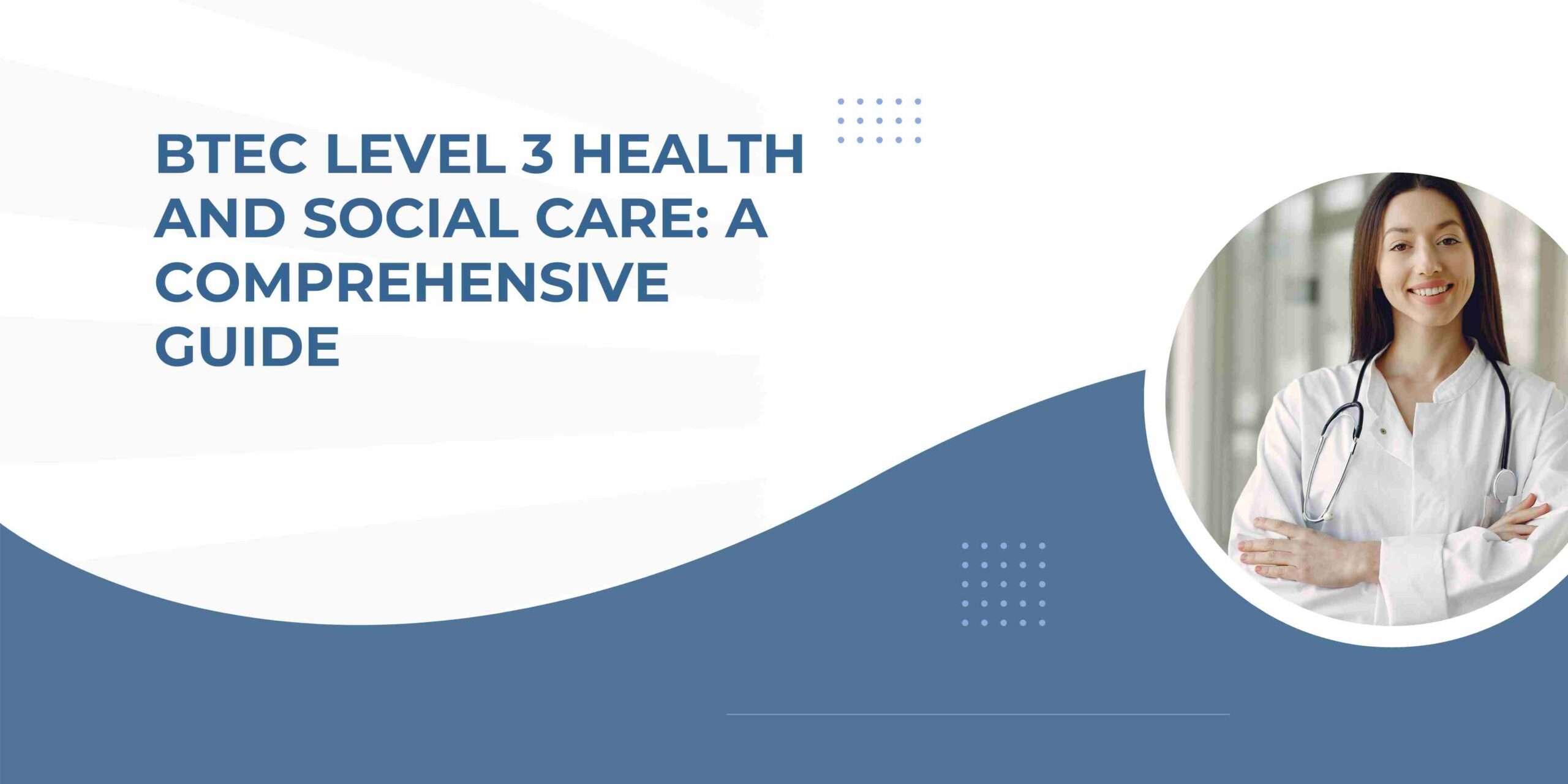BTEC Level 3 Health and Social Care: A Comprehensive Guide
Introduction
The BTEC Level 3 Health and Social Care qualification is a pivotal step for individuals aspiring to build a career in the health and social care sector. This comprehensive guide delves into every facet of the course, from its structure and content to career prospects and progression pathways.
Table of Contents
- Overview of BTEC Level 3 Health and Social Care
- Course Structure and Units
- Assessment Methods
- Entry Requirements
- Skills Developed
- Work Experience and Placements
- Progression Opportunities
- Career Pathways
- Benefits of the Qualification
- Challenges and Considerations
- Frequently Asked Questions
- Conclusion
1. Overview of BTEC Level 3 Health and Social Care
The BTEC Level 3 Health and Social Care qualification, offered by Pearson, is designed to provide learners with a comprehensive understanding of the health and social care sector. It combines theoretical knowledge with practical skills, preparing students for both higher education and employment in the field.
2. Course Structure and Units
The course is structured into mandatory and optional units, covering a range of topics essential for a career in health and social care. Key units include:
- Unit 1: Human Lifespan Development – Explores physical, intellectual, emotional, and social development across the human lifespan.
- Unit 2: Working in Health and Social Care – Focuses on roles, responsibilities, and career pathways in the sector.
- Unit 3: Anatomy and Physiology for Health and Social Care – Provides an understanding of the human body’s structure and functions.
- Unit 4: Enquiries into Current Research in Health and Social Care – Encourages critical analysis of contemporary research.
- Unit 5: Meeting Individual Care and Support Needs – Addresses personalized care planning and delivery.
- Unit 6: Work Experience in Health and Social Care – Offers practical experience in real-world settings.Leicester College+4Bridgnorth Sixth Form+4Queen Elizabeth High School+4
The Extended Diploma comprises 13 units, with 8 mandatory and 4 externally assessed units, totaling 1080 guided learning hours. City College+2Pearson Qualifications+2Studocu+2
3. Assessment Methods
Assessment is a combination of internal and external evaluations:
- Internal Assessments – Coursework, assignments, and projects assessed by educators.
- External Assessments – Examinations and tasks set and marked by Pearson.Gosforth Academy+1Bridgnorth Sixth Form+1
This blend ensures a holistic evaluation of both practical skills and theoretical knowledge.
4. Entry Requirements
Entry criteria may vary by institution, but generally include:Prospects
- Four or more GCSEs at grade 4/C or above, including English and Mathematics.
- A genuine interest in health and social care.
- A satisfactory Disclosure and Barring Service (DBS) check for work placements.Stoke-on-Trent College+2Longley Park Sixth Form+2Pearson Qualifications+2
5. Skills Developed
Students will acquire a range of skills, including:
- Communication – Effective interaction with clients and professionals.
- Empathy and Compassion – Understanding and responding to individual needs.
- Critical Thinking – Analyzing situations to make informed decisions.
- Teamwork – Collaborating with colleagues across various settings.
- Professionalism – Adhering to ethical and legal standards.The Student Room+14Bridgnorth Sixth Form+14The Basildon Upper Academy+14Studocu+19Study Rocket+19Prospects+19The Student Room+4The Basildon Upper Academy+4Bridgnorth Sixth Form+4
6. Work Experience and Placements
Practical experience is integral, with students completing a minimum of 100 hours in health and social care settings. These placements provide real-world insights and enhance employability. Pearson Qualifications+1Leicester College+1Leicester College
7. Progression Opportunities
Upon completion, students can pursue:
- Higher Education – Degrees in nursing, social work, occupational therapy, and related fields.
- Apprenticeships – Advanced training programs in the sector.
- Employment – Entry-level roles in care homes, hospitals, and community settings.Unique Mark
8. Career Pathways
The qualification opens doors to various careers, such as:
- Nurse – Providing medical care in hospitals and clinics.
- Social Worker – Supporting individuals and families through challenges.
- Care Worker – Assisting clients with daily activities in residential settings.
- Midwife – Supporting women during pregnancy and childbirth.
- Occupational Therapist – Helping clients regain independence in daily tasks.Pearson Qualifications
These roles are in high demand, offering job stability and personal fulfillment. Study Rocket
9. Benefits of the Qualification
- Comprehensive Curriculum – Covers a wide range of relevant topics.
- Practical Experience – Hands-on learning through placements.
- Flexibility – Suitable for various learning styles and career goals.
- Recognition – Widely acknowledged by employers and universities.
- Skill Development – Enhances both personal and professional competencies.Gosforth Academy+21The Guardian+21Prospects+21The Basildon Upper Academy
10. Challenges and Considerations
- Workload – Balancing coursework, placements, and personal commitments.
- Emotional Demands – Dealing with sensitive situations in care settings.
- Continuous Assessment – Regular evaluations requiring consistent effort.Queen Elizabeth High School+1Prospects+1
Prospective students should be prepared for these aspects to succeed in the program.
11. Frequently Asked Questions
Q: Is the BTEC Level 3 Health and Social Care equivalent to A-Levels?
A: Yes, the Extended Diploma is equivalent to three A-Levels.Gosforth Academy+12Studocu+12Longley Park Sixth Form+12
Q: Can I pursue university education after this qualification?
A: Absolutely. Many universities accept this qualification for health and social care-related degrees.The Student Room+4King Edward VI Academy+4Leicester College+4
Q: Are there opportunities for specialization within the course?
A: Yes, optional units allow students to focus on areas of interest, such as mental health or child care.
12. Conclusion
The BTEC Level 3 Health and Social Care qualification is a robust foundation for those passionate about making a difference in people’s lives. It offers a blend of academic knowledge and practical skills, paving the way for rewarding careers and further education in the health and social care sector.







